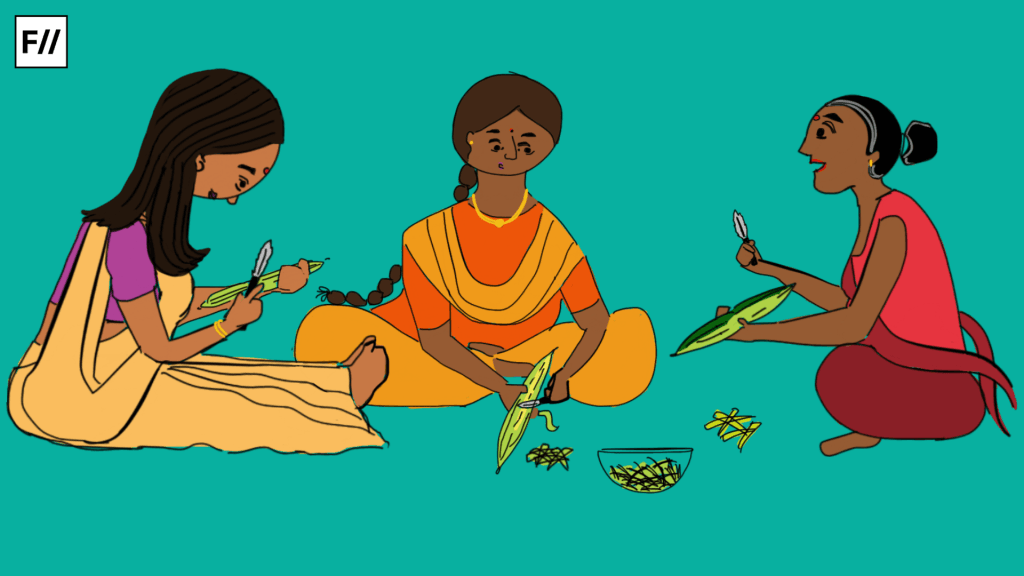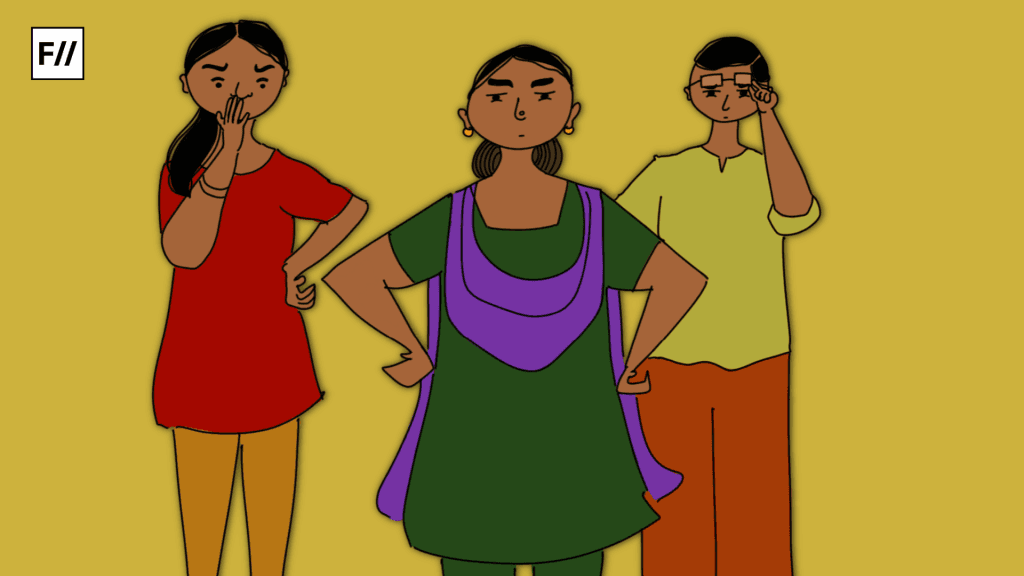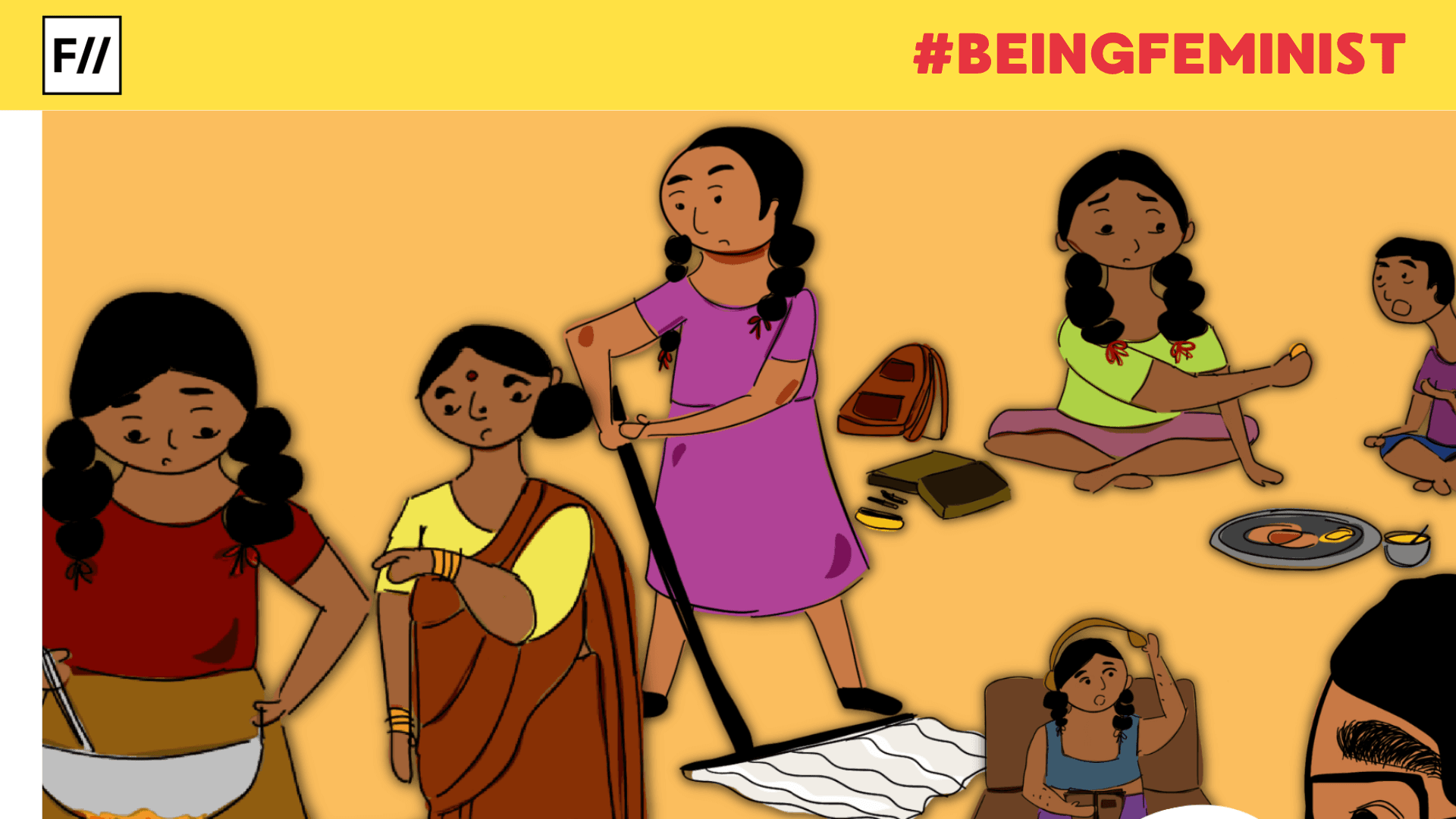“Who has spilt the milk over the kitchen slab?“- inquired my mom when she entered the kitchen to prepare dinner after she returned from work. My father quickly responded, “Definitely not me!” and resumed digging into the newspaper. Yeah, it was not my father, it was our cat that had spilt the milk. You see, even cats are happy to enter the kitchen but what makes it so hard for men to join in? Do men not eat?
Last year, around the first week of December, my mother had to get an urgent open heart surgery done. Her mitral valve was blocked and needed an immediate replacement. For the next 6 months that my mother was recuperating in the hospital and at home, I saw my father single-handedly manage cooking, cleaning, and also visiting my mother at the hospital. Once her recovery phase grew steady and she decided to head back to her work, my father happily took to his seat. That is far away from cooking, and cleaning. It feels like a man’s share of domestic work is like a cello tape that can provide temporary support to a crack in a water pipe.
For most of the male elders in our household, the prominent excuses to not indulge in household chores is because when they were younger, they helped their mother in cleaning the house, in cooking, in getting the groceries, hence, now that they are old, they will not engage in the domestic chores. Interestingly, the women who are still cleaning their houses and cooking three meals a day for the family, used to do the same when they were young. Why then women cannot sit and relax in their old age?
It is a common trend, the men no wonder are the flagbearers of patriarchy but the women are also hegemonically participating in the patriarchy. Or why else, my brother who is pursuing a PhD in Germany is lauded for doing the basic chores like cooking, doing his dishes, laundry, and so on? Every time he heads home, my aunts praise him for doing just the minimum; that too not for others, just for himself! Cut to back home, he never cooks nor does he even pick up the plate from the dining table to put in the sink (forget about him doing the dishes!)

The females of the family (including me), cannot possibly even recall when we started to do the dishes or started preparing for our elders. I had spent a year in the United Kingdom for my Master’s and took charge of the cooking and everything else even when I had fractured my ankle and also burnt my belly from the bursting of a hot water bag. But heading back home for me did not mean an altogether detachment from sweeping and mopping the floors, doing the dishes, or weeding the garden.
Furthermore, when my brother was moving to Germany, all our relatives encouraged him to settle and establish his career abroad. However when it was my turn to head abroad to study, I was constantly being bombarded with meaningless suggestions as to how to not settle with a White man or if I chose a career, I should head home and get a job near my home to stay close to my near-retirement parents. This contrast in the views and mindsets of the relatives reflects a pattern of systemic bias- wherein men are to date being encouraged to further their career aspirations and personal growth while women no matter how diligent are being relegated to carer responsibilities and marital prospects.
On retrospection, the incident of spilt milk in the kitchen painstakingly reflects the deep-rooted parochial patriarchal notions that persist in society. The men being reluctant to take part in the domestic chores simply reflects the ongoing normalisation of the so-called homemaker responsibilities in place for women only. This further reaffirms gender roles and breeds consequential inequality. Also, what does the temporary role reversal of the male partner as the carer when his partner undergoes treatment showcase? Very subtly, the men’s involvement in such cases underlines the men’s engagement in domestic chores as an act of exception or sheer benevolence which comes into play only during a crisis period.

Once the crisis period is over, feeding into the ingrained gender biases, the male partner excuses himself to his rightful place, on the couch sipping his steaming tea while his female partner sweats in the kitchen. Just to reiterate these instances are not mere examples, they are general patterns. According to Time Use Survey Reports 2019, women are involved in 7.8 hours of unpaid labour in the domestic sphere as compared to 2.8 hours spent by men in domestic chores.
Gender bias is no joke! The deep-seated patriarchy is getting into a vicious cycle wherein men and women are constantly reinstating gender performances (even when done unconsciously!). Or else how can one portion of the population, can get away from gruelling domestic chores while putting in only one-third of sweat in domestic chores?
I believe that achieving gender equality in the truest sense needs not just Government policies but also a robust socio-cultural mindset change. This means individuals must unlearn their biases and foster an environment that is more just and equitable for all. For instance, when getting into a living partnership, every individual seeks to get some help that reduces their labour; be it emotional or physical or so on. Unfortunately, when a woman returns home after her long arduous day of work and so does her dearest husband, why is it that the woman instantly needs to freshen up to cook dinner and the husband takes a long hot water shower and rest for some time before the dining table is laid out? Even when a woman is tackling her menstruating cramps, she still has to cook or say if for once, the husband cooks (on an exceptional day), the woman still has to clean up the kitchen and do dishes once the dinner is done. It is important to understand that people argue that getting domestic help will ameliorate the condition of getting done with the domestic chores.
Unfortunately, most of the domestic workers in India are also female hence reinstating the same gender dynamics in another family. The vicious cycle of gender stereotypes keeps going until and unless we internalise that the world is a space for all, and to live in harmony, working in tandem is important. If we eat, we need to cook together as well.





